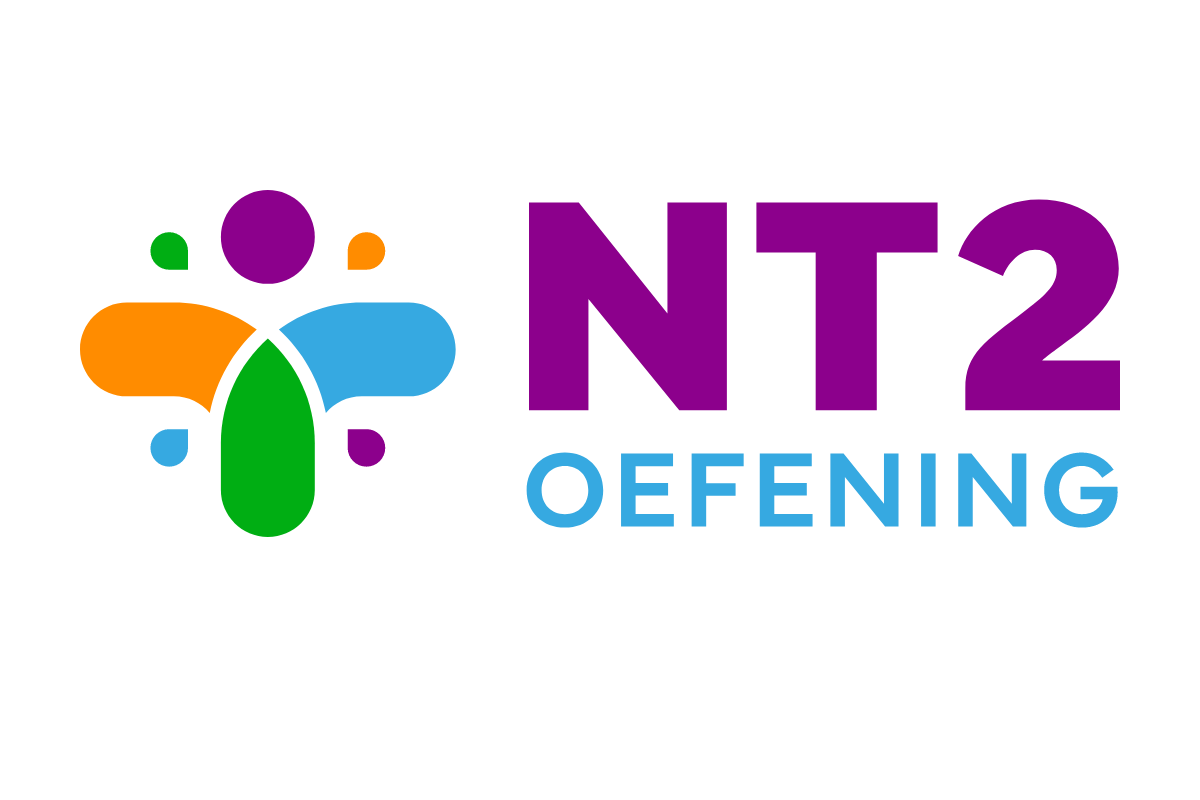Navigating the civic integration process in the Netherlands can be complex. For many, understanding which exams you are required to take can be challenging. However, under the 2021 Civic Integration Act, there are certain circumstances where you may be fully or partially exempt from these exams. This blog will guide you through the scenarios where Inburgering exam exemptions apply. So, you understand your rights and options for the.
Table of Contents
Exemption Scenarios
Under the 2021 Civic Integration Act, you may not have to take all exams if specific conditions apply. Below are some key scenarios where you might qualify for a partial exemption:
1. Serious Illness or Disability
If you have a serious illness or disability, you may be eligible for a partial exemption from certain exams required for the inburgering process. This exemption recognizes that certain medical conditions can severely limit your ability to participate in the integration exams fully. The Dutch government acknowledges these circumstances and offers a pathway for individuals to request a dispensation.
To apply for this exemption, you must provide detailed medical documentation supporting your condition. An Argonaut doctor reviews this documentation. An Argonaut doctor is responsible for evaluating your health status and determining if you qualify for an exemption. If your illness or disability significantly impacts your ability to take the exams, you may receive an exemption.
This process requires thorough medical assessment, and the decision is not made lightly. Individuals with genuine medical constraints still maintain the integrity of the integration process. However, they don’t have to be burdened by the exam requirements. Therefore, if you believe you qualify for this exemption, gather all necessary medical records and submit them as part of your application to DUO. It is the organization responsible for the civic integration exams.
2. Nt2 Certificate or Diploma
Are you holding an Nt2 certificate or diploma? The Nt2 (Nederlands als tweede taal) exams are standardized Dutch language proficiency tests. They assess non-native speakers’ command of the Dutch language. Have you already passed certain levels of the Nt2 exams? Then, you may not need to retake these specific language exams as part of the inburgering process.
Think that you have completed Nt2 Staatsexamen Programma I or II. So, you have achieved a sufficient level of Dutch proficiency. And, this might exempt you from retaking the language components of the civic integration exams. This is particularly beneficial for individuals who have already invested time and effort into learning Dutch.
This exemption acknowledges the competency you have already demonstrated through your Nt2 certification. However, it’s essential to check with DUO to confirm which integration parts you’re exempt from, based on Nt2 qualifications. The level of exemption granted depends on the specific exams you have completed and their alignment with the requirements of your Personal Integration Plan (PIP).
Situations Where You May Not Have to Take Any Exams at All
In some cases, you may be fully exempt from taking any of the integration exams. These Inburgering exam exemptions include:
1. Diplomas Obtained in the Netherlands, Belgium, or Suriname
Do you have a diploma from a school in the Netherlands or from a Dutch-language program in Belgium or Suriname? Then, you might be fully exempt from all inburgering exams. Because your diploma shows that you have already completed a thorough education in Dutch language and culture. As a result, taking additional exams would be unnecessary.
There are three kinds of exemptions:
1. Full Exemption
A full exemption means you do not have to take any integration exams. You receive this exemption if your education meets the criteria, showing you have achieved the required integration level.
Eligible Diplomas for Full Exemption:
- VMBO (pre-vocational secondary education)
- HAVO (higher general continued education)
- VWO (pre-university education)
- MBO Level 2 or Higher (vocational education)
- HBO (higher professional education) if the program was in Dutch
- WO (university degree) if the program was in Dutch
- Diplomas from educational institutions in Belgium or Suriname for programs taught in Dutch
If you have one of these diplomas, you may be fully exempt from the integration exams.
b. Partial Exemption
A partial exemption means you do not have to take certain parts of the integration exams. However, you still need to complete the remaining parts.
Documents and Qualifications for Partial Exemption:
- Staatsexamen Nt2 (Dutch as a Second Language state exam) or a partial certificate from this exam
- Certainly! Here’s how you can break it down:
- You took the Dutch language test (TGN) as part of the basic civic integration exam abroad (BIB) before November 2014. Also, you scored at least 37 points. Then, you may qualify for an exemption. In addition, if your Integration and Participation Plan (PIP) requires exams at the A2 language level, you might also be exempt from the Speaking exam.
- A list of marks or certificates from secondary education, adult education, or state exams showing sufficient grades in Dutch.
- A foreign diploma or certificate showing you passed one or more parts of the exam at A2 (Wi2013) or B1 (Wi2021) levels, from an accredited institution
Additional Note:
- If you started integration under the 2013 civic integration act before January 1, 2015, and have an ‘entreeopleiding’ (MBO Level 1) diploma, you may not need to take any exams.
- If you started integration between January 1, 2015, and January 1, 2022, with an ‘entreeopleiding’ (MBO Level 1) diploma, you do not need to take the ONA exam. This exemption is automatic, and you will receive a letter confirming it.
c. Temporary Exemption
You don’t have to integrate temporarily if you are currently in education. Check the Dutch education program for conditions and how to apply for extra time to integrate.
2. Long-Term Residency and Employment
Have you lived in the Netherlands for at least 10 years and worked here for at least 5 years? Then, you may qualify for a full exemption due to sufficient integration. This exemption recognizes that long-term residency and consistent employment indicate successful integration into Dutch society.
Living and working in the Netherlands for an extended period shows that you have already adapted to the Dutch life. You likely understand the language, culture, and societal norms well. Therefore, taking additional integration exams may not be necessary.
To apply for this exemption, you must provide proof of your residency and employment history. This includes documents like employment contracts and tax records that verify your long-term presence in Dutch society. After DUO reviews and approves your application, you will receive a full exemption from the inburgering exams.
3. Exceptional Individual Circumstances
In rare cases, some individuals face exceptional personal situations that, therefore, prevent them from integrating. As a result, they may qualify for a full exemption from all exams. Specifically, this type of exemption is known as dispensation due to exceptional individual circumstances (BIO). Typically, these circumstances are unique and involve severe personal hardships. Consequently, these hardships may make it impossible for the individual to participate in the integration process.
For example, you are dealing with a significant family crisis, such as the illness of a close family member. On the other hand, you may be experiencing extreme financial difficulties. These factors may severely impact your ability to focus on the integration exams. In such situations, the Dutch government may grant a full exemption to avoid placing additional stress on individuals.
On the other hand, applying for this exemption requires detailed documentation of your circumstances. You must provide evidence that clearly outlines the challenges you are facing. Also, you need to show how they affect your ability to participate in the integration process. DUO will carefully review your application. If your situation is deemed exceptional, you will be granted a full exemption from the exams.
Applying for Exemptions
1- Start with DUO
First, if you believe you qualify for an exemption, you need to apply through DUO.
2- Applying for Serious Illness or Disability
Next, if you have a serious illness or disability, fill out the form ‘Aanvraag ontheffing bij ziekte.’ After that, submit the form to DUO along with your medical records.
3- Automatic Recognition for Nt2 Certificate Holders
If you hold an Nt2 certificate or diploma, check if it meets your PIP’s language proficiency requirements. Often, DUO automatically recognizes these exemptions if they meet the necessary criteria.
4- Submitting Documents for Diplomas or Long-Term Residency
For those claiming exemptions based on diplomas, long-term residency, or exceptional circumstances, gather all relevant documents. Then, submit these documents to DUO to support your exemption request.
5- Review and Notification
Finally, once DUO reviews your application, they will inform you about your exemption status. If further steps are required, they will guide you on what to do next.
Conclusion
Understanding your rights and options about Inburgering exam exemptions under the 2021 Civic Integration Act is crucial. Whether due to illness, disability, previous qualifications, long-term residency, or exceptional personal circumstances, you may not have to take all, or even any, of the integration exams. Knowing when and how to apply for these exemptions can simplify your integration process and help you focus on other aspects of settling in the Netherlands.
Stay tuned for our next blog, where we will discuss the Inburgering exam exemptions available under the 2013 Civic Integration Act.
Nt2 Oefening - Your New-gen Integration Partner
Nt2 Oefening is an essential resource for anyone preparing for the Dutch Inburgering exams. Designed to help learners practice and improve their Dutch language skills, this platform offers a wide range of exercises tailored to the levels required by the Nt2 exams. Whether you’re working on your reading, writing, listening, or speaking skills, the platform provides interactive and engaging activities that simulate real exam conditions. In addition, with its user-friendly interface and adaptive learning tools, the Nt2 Oefening Platform allows you to track your progress and focus on areas where you need the most improvement. By incorporating this platform into your study routine, you can increase your chances of success in achieving the necessary language proficiency for integration in the Netherlands.

